Aru stays in the fight for the Vuelta a Espana lead after superb time trial
'Three seconds down is not bad at all,' says Astana leader
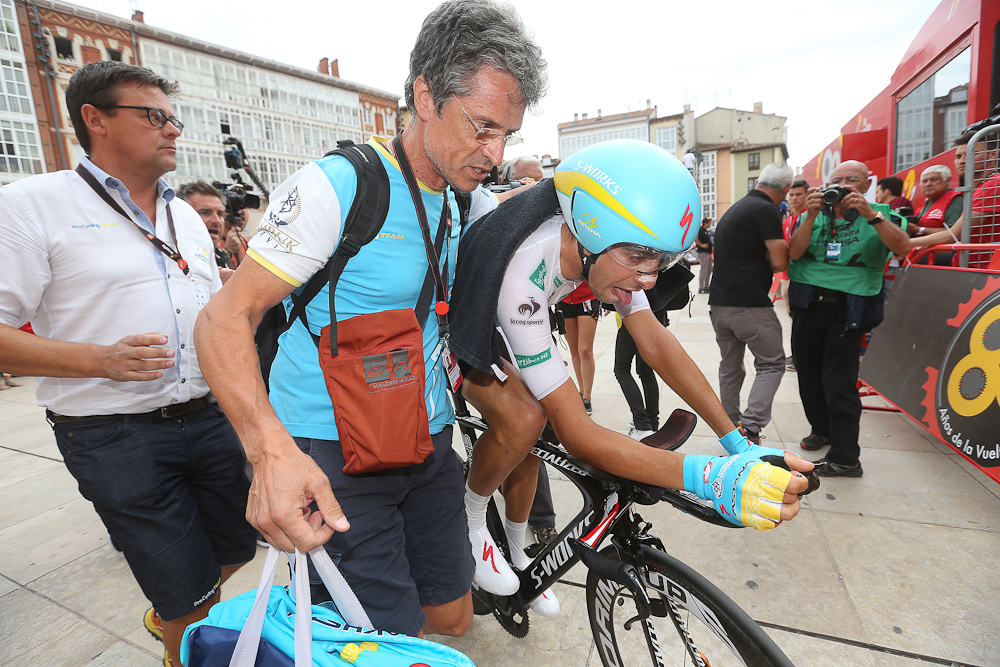
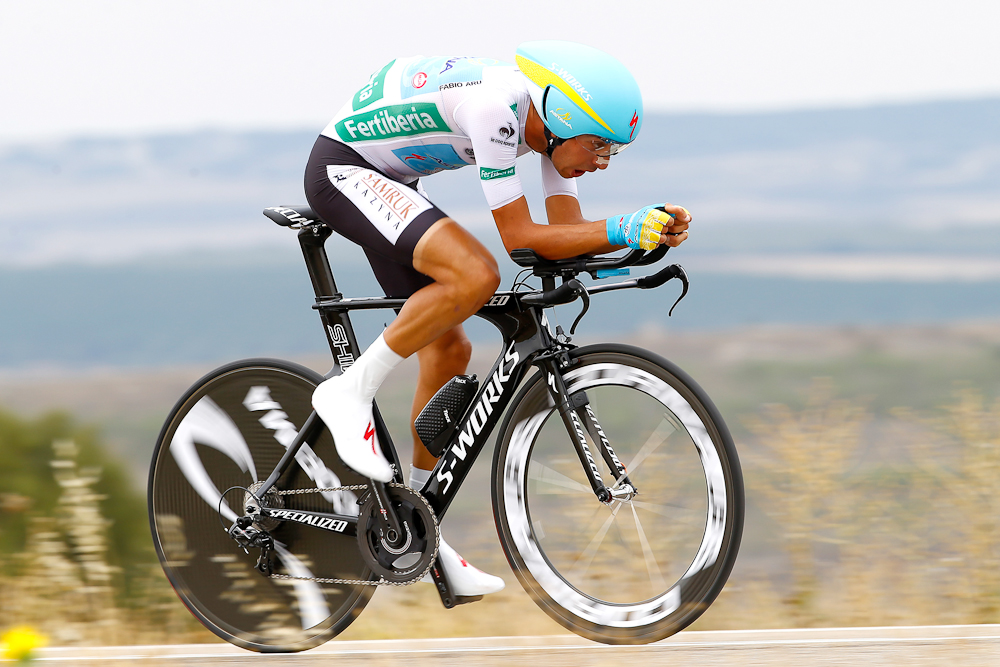
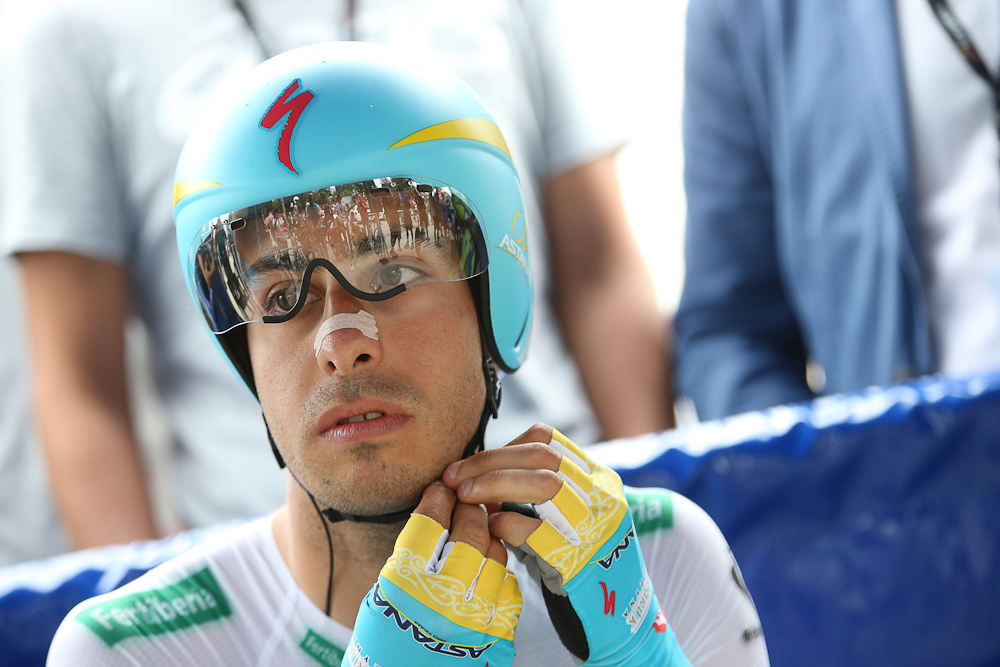
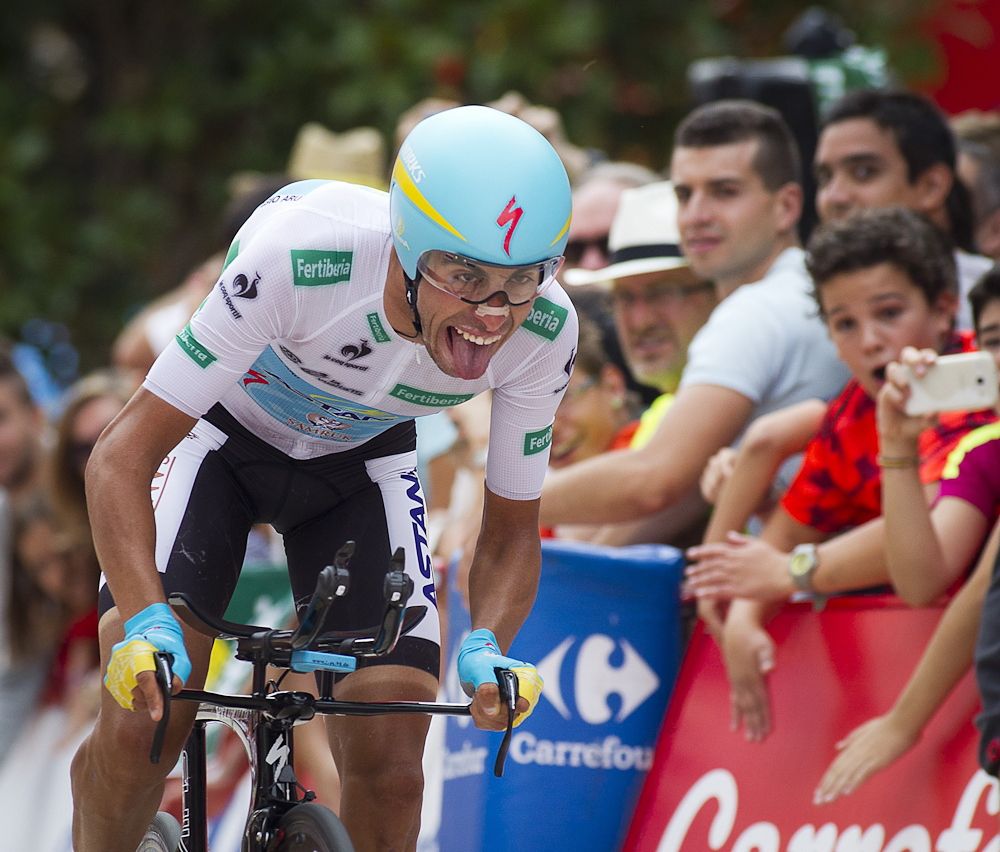
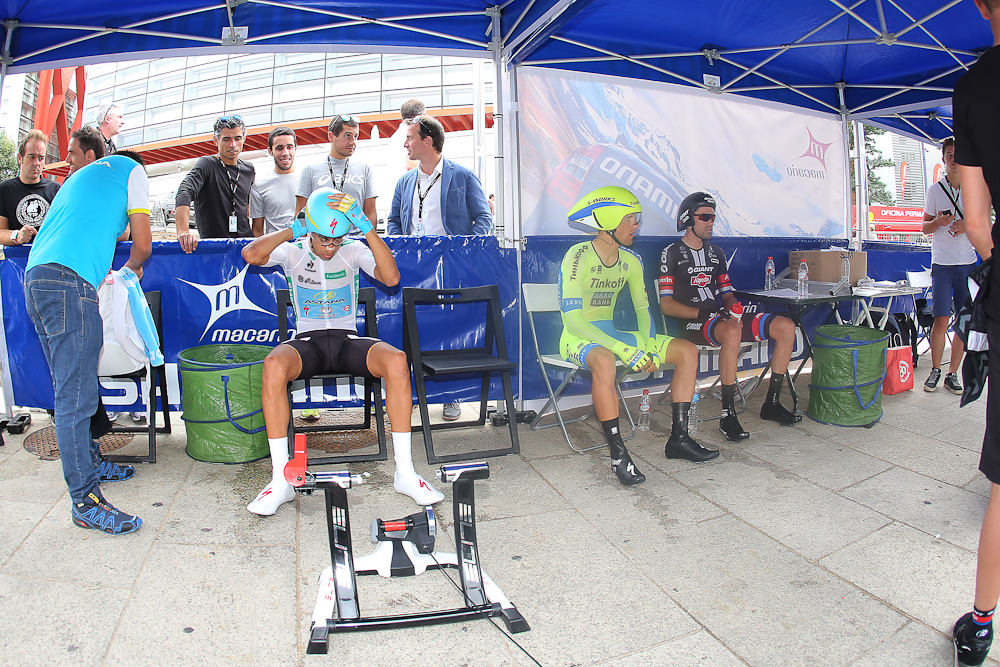
After losing the Vuelta a Espana lead by one second to Joaquim Rodriguez during Monday’s final summit finish of the race, Italian climber Fabio Aru (Astana) shone on theoretically far more hostile terrain during Wednesday's time trial in Burgos to remain strongly in contention for the overall win in Madrid.
Tenth behind new race leader Tom Dumoulin (Giant-Alpecin) in the Burgos time trial, Aru only conceded 1:53 to the Dutchman and is now just three seconds back on Dumoulin. Such a solid performance was a far cry from the previous Grand Tour time trial of Aru's career, in the Giro d'Italia's chrono stage 14 this May, where Aru lost 2:47 and the race lead to Alberto Contador.
With three mountain stages remaining, albeit none with summit finishes, the Vuelta now returns to Aru's favoured hunting ground, and with three seconds between himself and Dumoulin, there is clearly everything to play for.
"If I had got the lead back, I'd be even happier," Aru, fifth in last year's Vuelta, said afterwards. "But in any case, finishing and seeing that I was in second [overall] feels like a good time trial. Three seconds down [overall] is not bad at all."
Asked by a journalist if his tactic would now be "to drop Tom and hold him off on the descents," Aru retorted, "You make it sound as if it was easy. There's also going to be a battle for the podium. It's going to be like it was in the last few days, or maybe even harder."
The question of where or when Aru - or the other climbers well placed overall - could strike out for the lead is a moot one. Of the three mountain stages remaining in this year's Vuelta, the third, on Saturday, is the most difficult on paper, with four first category climbs, and 3,500 metres of climbing.
However, all the climbs in the Sierras of Madrid - the Morcuera, Cotos and Navacerrada - have fairly straightforward, broad, steady ascents and downhill sections of the type a non-specialist climber like Dumoulin arguably handles the best. Thursday's ascent and descent of the first category La Quesera, on the other hand, are easier to tackle but on what were - unless they have been re-surfaced recently - far more treacherous road surfaces and with a difficult series of 10 percent 'ramps' on the approach to the climb, too.
Get The Leadout Newsletter
The latest race content, interviews, features, reviews and expert buying guides, direct to your inbox!
Friday, meanwhile, has fewer classified climbs, just a second and a third category ascent. But with barely a metre of flat in the second half of the stage, as well as the notoriously cobbled uphill approach road into Avila, it is not at all straightforward. The ball, in any case, is in Aru's court.
Alasdair Fotheringham has been reporting on cycling since 1991. He has covered every Tour de France since 1992 bar one, as well as numerous other bike races of all shapes and sizes, ranging from the Olympic Games in 2008 to the now sadly defunct Subida a Urkiola hill climb in Spain. As well as working for Cyclingnews, he has also written for The Independent, The Guardian, ProCycling, The Express and Reuters.
